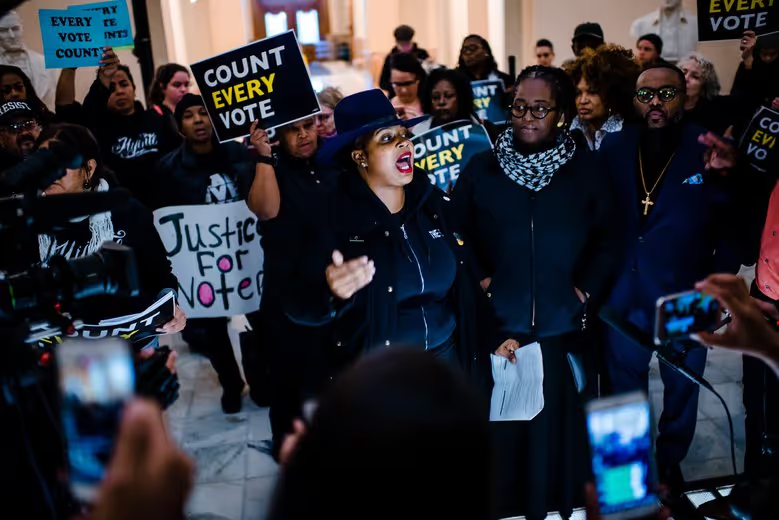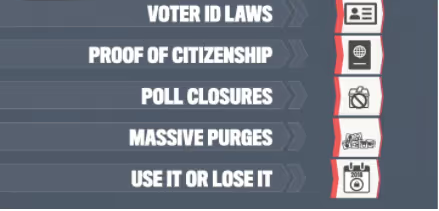Lesson Plan
Grades 6-8
Grades 9-10
Grades 11-12
And She Could Be Next (Episode 2): Voter Suppression Extensions
Extensions

In this collection:
Language Learners:
- Create graphic organizers that include illustrations that may help language learners distinguish words related to voter suppression, such as the example from the film shown in the screenshot below:

- In tandem with reading and writing practice, create opportunities to build verbal language fluency around these issues by having students orally articulate how specific voter suppression laws work.
Diverse Learning Spectrum:
- Using the metaphor of running in an unfair race, talk about the way ableism is used to disadvantage differently abled people from voting. Have students discuss how they felt when they heard that the American Disabilities Act was being used in Georgia to close down polling locations.
- Pre-prepare handouts with information on election turnout and voter participation demographics.
College-level (grade level 13+) extension:
- Using a research database, identify a reputable academic journal in one of the following fields: political science, political communication, rhetoric, gender studies, race studies, or another scholarly field approved by your instructor. Locate an article that focuses its analysis on the 2016 election. Read the article and write a 3-4 page summary of its research question(s) and argument(s), analytical methods, and conclusions. Include your own voice: Why did you choose this article to analyze? What about it interested you? What do you think the author(s) do really well? If you had to give the researcher(s) one piece of constructive criticism, what would it be? In what ways are the conclusions/arguments the authors make about the 2016 election relevant or important to the upcoming 2020 election?

